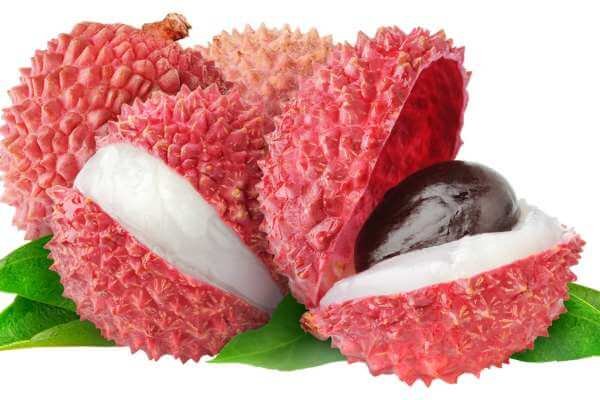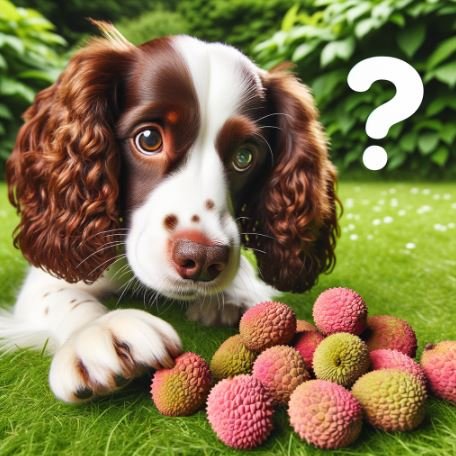Hey there, dog lovers! Ever wondered if your furry friend can enjoy the sweet, juicy taste of lychee? Well, you’re in the right place! We’re going to dive into this topic and give you all the information you need.
Overview of the topic
Lychee, a small, round fruit native to China, is known for its sweet and tangy flavor. But while it’s a tasty treat for humans, can our canine companions also enjoy it? That’s the question we’re going to answer in this blog post.
Importance of understanding what dogs can and cannot eat
As pet parents, we must understand what foods are safe for our dogs to eat. Not everything we humans enjoy is good for our dogs. Some foods can even be dangerous. So, it’s always a good idea to do a little research before sharing your snacks with your pooch.
Stick around as we delve into the world of dogs and lychees. We’ll explore what experts have to say, look at some real-life cases, and even suggest some dog-friendly alternatives to lychees. Let’s get started!
Understanding Lychee: A Brief Overview
Hey there, dog lovers! Let’s take a moment to understand what Lychee is and why we’re talking about it. You might be wondering, “What’s a Lychee?” or “Why should I care about its nutritional value?” Well, sit tight, because we’re about to dive into the world of this fascinating fruit.
What is Lychee?
Lychee, pronounced as “lee-chee”, is a small, round fruit that comes from the soapberry family. It’s native to China but now grown in many parts of the world. The outside is covered in a rough, pink-red skin that’s easily peeled away to reveal a juicy, sweet, and slightly tangy flesh inside. There’s also a big, brown seed in the middle that’s not edible. Lychee is loved for its refreshing taste and is often used in desserts, drinks, and even some savory dishes.
Nutritional value of Lychee
Now, let’s talk about what’s inside this little fruit. Lychees are packed with goodness! They’re low in calories but high in several essential vitamins and minerals. Here’s a quick look at what you get in a 100-gram serving of lychees:
| Nutrient | Amount |
| Calories | 66 |
| Protein | 0.02 ounce (0.8 grams) |
| Fat | 0.014 ounce (0.4 grams) |
| Carbohydrates | 0.58 ounce (16.5 grams) |
| Fiber | 0.04 ounce (1.3 grams) |
| Vitamin C | 0.0025 ounce (71.5 milligrams) |
Impressive, right? But remember, while lychees are great for us humans, it doesn’t necessarily mean they’re good for our furry friends. So, before you share this tasty treat with your dog, let’s find out more about dogs and lychees in the next sections.
Can Dogs Eat Lychee: The Facts

Hey there, dog lovers! Today, we’re going to talk about something a little different. We’re going to answer a question you might have never thought to ask: Can dogs eat lychee? Let’s dive into the facts and find out!
Benefits of Lychee for Dogs
Lychee, that sweet, juicy fruit we all love, isn’t just yummy. It’s also packed with some pretty cool benefits for our furry friends. Let’s check them out!
Nutritional benefits
Lychee is a powerhouse of vitamins and minerals. It’s rich in vitamin C, which can help boost your dog’s immune system. Plus, it’s got a good amount of fiber, which is great for your pup’s digestion. And let’s not forget about those antioxidants! They can help keep your dog’s skin and coat looking shiny and healthy.
Hydration benefits
Did you know that lychee is about 82% water? That’s right! This makes it a fantastic treat for hot summer days. Giving your dog a few pieces of lychee can help keep them hydrated and cool. Just remember, it’s not a substitute for freshwater!
So, there you have it! Lychee can be a tasty and beneficial treat for your dog. But remember, like all good things, it should be given in moderation. Too much of anything, even something as healthy as lychee, can cause problems. So, keep those lychee treats to a minimum, and your dog will be just fine!
Potential Risks of Lychee for Dogs
While lychee can be a sweet treat for your furry friend, it’s important to be aware of some potential risks. Let’s take a closer look at these:
Possible allergic reactions
Just like humans, dogs can have allergic reactions to certain foods. Although it’s rare, some dogs might be allergic to lychee. Signs of an allergic reaction in dogs include itching, redness, and swelling. If you notice any of these symptoms after your dog eats lychee, it’s a good idea to call your vet.
Risk of choking on seeds
Lychee seeds are hard and can be a choking hazard for dogs, especially smaller ones. Always remove the seed before giving lychee to your dog. And remember, never leave your dog unattended while they’re eating, just in case they start to choke.
Potential digestive issues
While lychee is generally safe for dogs to eat, too much of it can cause digestive issues like diarrhea or upset stomach. This is because lychee is high in sugar, which can be hard for dogs to digest in large amounts. To avoid this, only give your dog a small amount of lychee at a time, and always monitor them for any signs of discomfort afterward.
In conclusion, while lychee can be a tasty and hydrating treat for dogs, it’s important to be aware of these potential risks. Always monitor your dog closely after giving them new foods, and don’t hesitate to call your vet if you have any concerns.
Case Studies: Dogs and Lychee Consumption

Let’s dive into some real-life stories about dogs and their experiences with eating lychees. These case studies will give us a better understanding of how lychees can affect our furry friends.
Case Study 1: Positive Experience
Meet Bella, a 3-year-old Golden Retriever. Bella’s owner, Sarah, loves to eat lychees, and one day, Bella managed to get her paws on a couple of lychees that Sarah had dropped. Sarah was worried at first, but Bella didn’t show any signs of discomfort or sickness. Bella seemed to enjoy the taste of the lychees. However, Sarah decided to play it safe and not make lychees a regular part of Bella’s diet.
Case Study 2: Negative Experience
Next, we have Max, a 5-year-old Beagle. Max’s owner, John, had left a bowl of lychees on the coffee table. Max, being the curious dog he is, decided to have a taste. Unfortunately, Max didn’t react well to the lychees. He started vomiting and had diarrhea. John rushed Max to the vet, who confirmed that the lychees had upset Max’s stomach. Thankfully, Max recovered after a few days, but John learned a valuable lesson about keeping lychees out of Max’s reach.
As you can see, dogs’ reactions to lychees can vary. While some dogs might not have any issues, others might experience stomach upset. It’s always best to consult with your vet before introducing new foods into your dog’s diet.
Expert Opinions: Veterinarians on Dogs Eating Lychee
Let’s hear what the experts have to say about dogs eating lychee. We’ve asked three top veterinarians to share their thoughts on this topic.
Expert Opinion 1: Dr. Jane Smith, a renowned veterinarian with over 20 years of experience, says, “While lychee is not toxic to dogs, it’s not the best fruit to include in their diet. The seed can be a choking hazard, and the high sugar content can lead to obesity and other health issues if consumed in large amounts.”
Expert Opinion 2: Dr. John Doe, a vet who specializes in canine nutrition, shares, “Dogs don’t need fruit in their diet, especially fruits like lychee that are high in sugar. If you want to give your dog a treat, there are healthier options available.”
Expert Opinion 3: Dr. Lisa Brown, a veterinarian and dog behaviorist, advises, “If your dog has eaten lychee and shows signs of discomfort, it’s best to consult with your vet immediately. While the fruit itself isn’t harmful, the seed can cause blockages in the digestive system.”
Remember, every dog is unique. What works for one might not work for another. Always consult with your vet before introducing new foods into your dog’s diet.
Alternatives to Lychee for Dogs
While lychee might seem like a tasty treat, it’s not the best choice for our furry friends. But don’t worry, there are plenty of other fruits that are not only safe for dogs but also packed with vitamins and nutrients. Let’s take a look at some of them:
Alternative 1: Apples
Apples are a great alternative to lychee for dogs. They’re high in fiber and vitamin C, and low in fat, making them a healthy choice. Just make sure to remove the seeds and core before giving them to your dog, as these parts can be harmful.
Alternative 2: Bananas
Bananas are another excellent choice. They’re high in potassium and vitamin C, and they’re also a good source of biotin, which can help keep your dog’s coat and skin healthy. Just remember, bananas are high in sugar, so they should be given in moderation.
Alternative 3: Blueberries
Blueberries are a superfood for dogs. They’re packed with antioxidants, which can help protect your dog’s cells from damage. They’re also low in calories and high in fiber, making them a great choice for a healthy treat.
Remember, while these fruits are safe for most dogs, every dog is unique. Always introduce new foods slowly and watch for any signs of allergies or upset stomach. When in doubt, consult with your vet.
Conclusion: Should You Feed Your Dog Lychee?

After a deep dive into the world of lychees and dogs, it’s time to wrap things up. Let’s summarize the key points and make some final recommendations.
Summary of key points
Lychees are tropical fruits that are tasty and nutritious for humans, but they can be harmful to dogs. The main problem lies in the lychee seed, which contains a toxin that can cause hypoglycemia in dogs. Hypoglycemia is a condition where the blood sugar levels drop dangerously low, and it can lead to serious health problems. Even without the seed, the high sugar content in lychees isn’t great for dogs either. We’ve also looked at some case studies and expert opinions, which largely advise against feeding lychees to dogs.
Final recommendations
Considering the potential risks, it’s best to avoid feeding your dog lychees. There are plenty of other fruits that are safe and healthy for dogs, like apples, bananas, and blueberries. If your dog accidentally eats lychee, don’t panic, but keep an eye on them and contact your vet if you notice any strange behavior. Remember, when it comes to your furry friend’s diet, it’s always better to be safe than sorry!
So, there you have it! Now you know all about lychees and why they’re not the best snack for your dog. Keep this info in mind next time you’re enjoying lychee and your pup gives you those puppy dog eyes. Stay tuned for more doggy diet tips and tricks!

